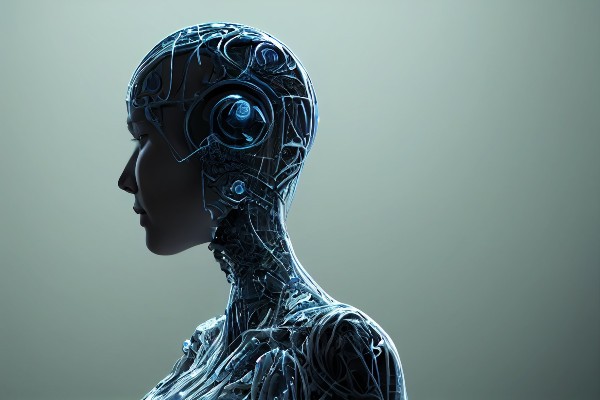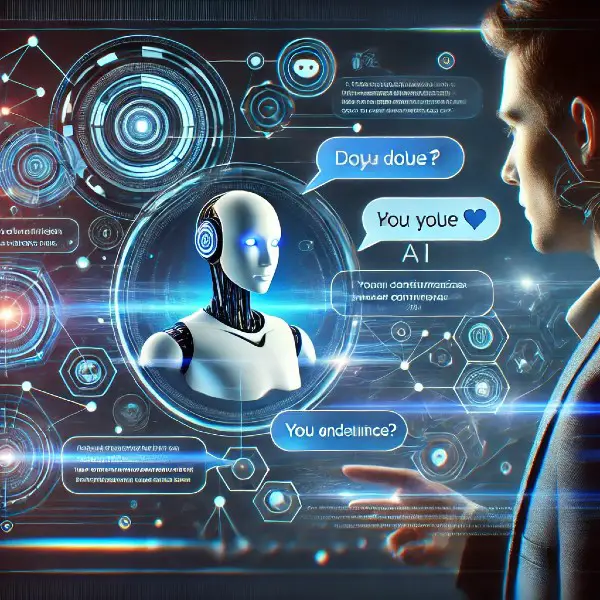Robotics and Black Box AI
Robots Getting Smarter
In robotics, Black Box AI is a game-changer. It’s helping robots learn from their experiences and make decisions on their own. This means robots are getting more advanced and can do more complicated tasks, whether in factories, hospitals, or even our homes.
Safety and Ethics
However, with great power comes great responsibility. As robots become more autonomous, we need to think about safety and ethical issues. How do we make sure robots with Black Box AI are safe and making good decisions? It’s a big question that experts are working hard to answer.
Myths vs. Facts about Black Box AI
Clearing Up Confusion
There are lots of myths about Black Box AI. Some people think it’s always dangerous or too hard to understand. But in reality, Black Box AI can be really safe and useful when used the right way. The ‘black box’ part just means that sometimes we don’t fully understand how the AI makes its decisions.
Understanding the Real Deal
Another common myth is that Black Box AI is too complicated for anyone but experts. While the details can be complex, the basic ideas behind Black Box AI are not too hard to grasp. It’s all about computers using data to make decisions or predictions.
FAQ
Answering Your Questions
What is Black Box AI? Black Box AI is a type of AI where we don’t fully see or understand how it makes its decisions. It’s like having a smart machine that can solve problems but doesn’t explain how it did it.
Why is Black Box AI important? Black Box AI is important because it can handle complex tasks and analyze lots of data quickly, helping in fields like healthcare, finance, and more. It makes things faster and more efficient.
Can Black Box AI be trusted? Trusting Black Box AI depends on how it’s made and used. It’s important that these AI systems are built well and checked to make sure they work properly and fairly.
How is Black Box AI used in everyday life? Black Box AI is used in things like online recommendation systems, smart home devices, and even in some cars. It’s becoming more common in the technology we use every day.
What are the risks of Black Box AI? The risks include the AI making wrong or biased decisions and concerns about privacy. It’s important to keep improving AI to make sure it’s safe and fair.
Google Snippets
Quick Insights
Black Box AI: AI systems where the decision-making process is not fully clear, used in various industries for complex problem-solving.
Future of Work: How jobs and workplaces are changing because of new technologies like AI, affecting the skills we need and how we work.
AI in Robotics: The use of AI to make robots smarter and more capable of doing complex tasks on their own.
Black Box AI Meaning
Explained from Different Perspectives
Technical Definition: Black Box AI involves AI systems where the inputs and outputs are known, but the process in between isn’t fully clear.
Simple Explanation: For most people, Black Box AI is a smart system that makes decisions or solves problems without showing the exact steps.
Ethical Viewpoint: From an ethical perspective, Black Box AI raises questions about transparency and accountability in AI decision-making, especially in important applications.
Did You Know?
Interesting Facts about Black Box AI
AI in Health Diagnosis: Black Box AI is being used to help diagnose diseases, sometimes even more accurately than human doctors.
AI in Creative Fields: Black Box AI is also being used in art and music, creating unique and innovative pieces.
Self-Learning Systems: Some Black Box AI systems can learn and improve on their own, getting better at tasks over time.
Black Box AI is an exciting and influential part of modern technology. It’s making big changes in marketing, helping developers and data scientists, advancing robotics, and shaping the future of work. Understanding Black Box AI helps us appreciate its capabilities and the importance of using it responsibly.
As Black Box AI continues to evolve, it’s important for us to stay informed and engaged with its development and applications. This technology has huge potential to improve our lives, but we need to use it wisely and ethically. Black Box AI might seem complex, but its impact on our world is significant.
Have you ever heard of “Black Box AI” and wondered what it really means? Black Box AI is a type of artificial intelligence that’s a bit mysterious. It makes decisions or solves problems in ways that aren’t always clear to us. This blog post is designed to explain Black Box AI in simple terms, perfect for someone with an eighth-grade education.
We’re going to look at how Black Box AI is making big changes in fields like marketing, how it’s crucial for developers and data scientists, its role in robotics, and what it means for the future of work. By the end of this post, you’ll understand more about Black Box AI and why it’s so important in today’s tech world.
Marketing and Black Box AI
Changing the Game in Advertising
In marketing, Black Box AI is a powerhouse. It analyzes heaps of data to figure out what customers might want to buy. This means companies can make super-targeted ads, showing you stuff you’re more likely to be interested in, and not just random things.
Balancing Ads and Privacy
But, there’s a challenge. Using Black Box AI in marketing brings up privacy concerns. Companies have to be careful not to cross the line and make people feel like their privacy is invaded. They need to find a balance between helpful, personalized ads and keeping our personal information private.
Developers and Data Scientists
The Brains Behind AI
For developers and data scientists, Black Box AI is like a complex puzzle they get to solve. They build and tweak AI models, making sure they work well and are reliable. Their job is to understand the data, train the AI, and improve it over time.
Navigating Challenges
But it’s not easy. These professionals face big challenges, like making sure the AI isn’t biased and that it can be trusted. They have to work hard to understand how the AI makes decisions and to keep making it better and fairer.
References
- Explainable AI that uses counterfactual paths generated by conditional permutations of features. This method is used to measure feature importance by identifying sequential permutations of features that significantly alter the model’s output. The paper discusses the evaluation strategy of comparing the feature importance scores computed by explainers with the model-intern Gini impurity scores generated by the random forest, which is considered as ground truth in the study.
- Thinkful offers insights on how to address the “black box” problem in AI through Explainable AI (XAI) and transparency models. They discuss techniques like Feature Importance Analysis, Local Interpretable Model-agnostic Explanations (LIME), SHapley Additive exPlanations (SHAP), Model Distillation, and Decision Rules, which are designed to make AI models more interpretable and transparent. This is especially important in applications where decisions can have far-reaching consequences, such as healthcare or finance
- Superb AI‘s blog discusses the challenges of the reliability of AI and its adoption into society, given the opaque nature of black box models. The widespread use of AI technologies presents issues related to data bias, lack of transparency, and potential infringement on human rights. The article addresses how Explainable AI is crucial for building AI systems that are not only powerful but also trustworthy and accountable.







